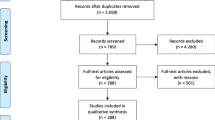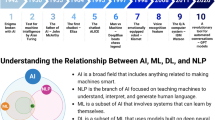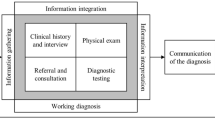Abstract
RECONSIDER, a computer program designed to perform as a diagnostic prompting aid, was evaluated for its ability to include the correct diagnosis in an ordered computed list of candidate diseases. The study was performed using 100 consecutive first admissions to the medical service of a university hospital, where the individuals entering the data into the program were blind to all but a limited set of findings known at time of admission. Each person entering the data created one or more lists of diagnostic possibilities (versions) using the program. The program suggested the correct diagnosis within the first 40 on its list 61% (498/797) of the time; the correct diagnosis was present with the first 40 in at least one version 93% (98/105) of the time. Performance was found to be best with cases having a single diagnosis and when more terms were entered into the program.
Similar content being viewed by others
References
Elstein, A. S., Shulman, L. S., and Sprafka, S. A.,Medical Problem Solving: An Analysis of Clinical Reasoning Harvard University Press, Cambridge, 1978.
Shortliffe, E. H.,Computer-Based Medical Consultations: MYCIN Elsevier, New York, 1976.
Scadding, D., Diagnosis: The clinician and the computer.Lancet 2:877–881, 1967.
Lindberg, D. A. B., Rowland, L. R., Buch, C. R., Jr., Morse, W. F., and Morse, S. S., CONSIDER: A computer program for medical instruction.Ninth IBM Medical Symposium, IBM Corp., 1968.
Blois, M. S., Clinical judgment and computers.N. Engl. J. Med. 303:192–197, 1980.
Blois, M. S., Conceptual issues in computer-aided diagnosis and the hierarchical nature of medical knowledge.J. Med. Philos. 8:29–50, 1983.
Gordon, B., ed.,Current Medical Information and Terminology 4th ed. American Medical Association, Chicago, 1971.
Blois, M. S., Tuttle, M. S., and Sherertz, D. D., RECONSIDER: A program for generating differential diagnoses.Proceedings of the Fifth Annual Symposium on Computer applications to medical care (H. G. Hefferman, ed.), IEEE, New York, 1981, pp. 263–268.
Goldman, L., Sayson, R., Robbins, S., Cohn, L. H., Bettman, M., and Weisberg, M., The value of the autopsy in three medical eras.N. Engl. J. Med. 308:1000–1005, 1983.
Nelson, S., Hoffman, S., Kanekal, H., and Varma, A. O., Making the most of RECONSIDER: An evaluation of input strategies.Proceedings of the Seventh Annual Symposium on Computer Applications to Medical Care (R. E. Dayhoff, ed.), IEEE, New York, 1983, pp. 852–855.
Yamashita, D. T., Erlbaum, M. S., Harrison, P. B., and Winkelmann, B. R., Preliminary evaluations of RECONSIDER, a diagnostic prompting program.Proceedings: AAMSI Congress 83 (D. A. B. Lindberg, E. E. Van Brunt, and M. A. Jenkin, eds.), American Association for Medical Systems and Informatics, Bethesda, 1983, pp. 92–96.
Author information
Authors and Affiliations
Additional information
This research was supported in part by the National Library of Medicine, Grant 5T 15 LM 07000-06, and by the Kaiser Family Foundation.
Rights and permissions
About this article
Cite this article
Nelson, S.J., Blois, M.S., Tuttle, M.S. et al. Evaluating RECONSIDER. J Med Syst 9, 379–388 (1985). https://doi.org/10.1007/BF00992575
Issue Date:
DOI: https://doi.org/10.1007/BF00992575




